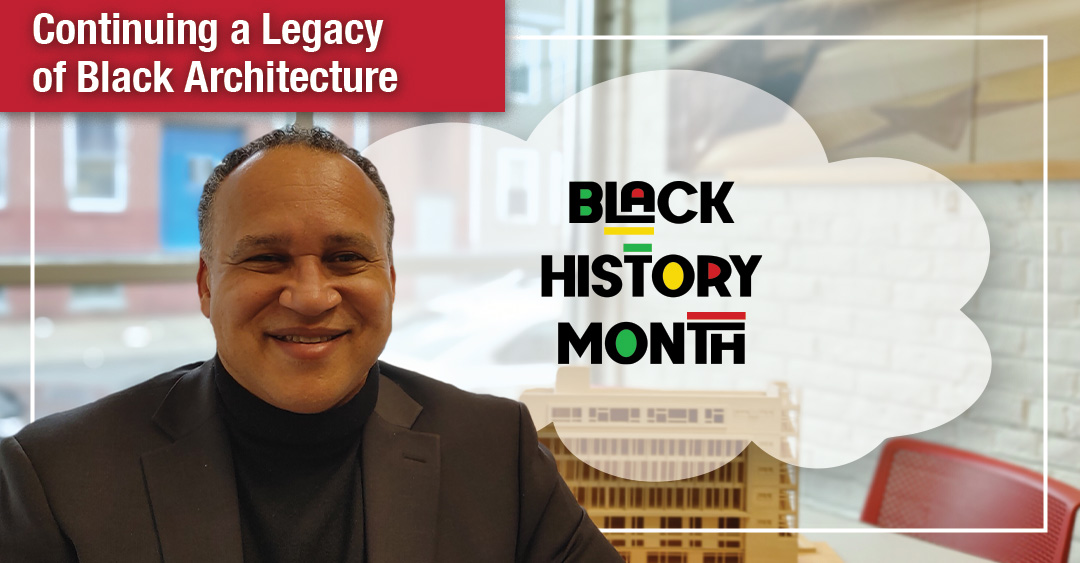As Black History Month comes to a close, we asked DIG President, Vince Myers, to reflect on his influences and experiences as a Black architect and business owner.
1. In your recent piece for AIA NJ, you spoke about how your father Harvey was an inspiration for you to become an architect. Were there any others who helped inspire this passion?
In some respects it’s like the old adage, “What came first the chicken or the egg?” I’d like to think, at a young age, I had the passion within me to be creative. Once I was exposed to architecture through my father, the world opened up to meet people in architecture and allied professions, many of whom were African American, that helped me on my journey.
2. How did Syracuse University help prepare you for your career in architecture?
SU provided an even wider perspective, respect and appreciation for design here and abroad. My studies took me to Florence, Italy, where I lived and studied for a semester, an opportunity that I’ll never forget because it amplified my understanding of how magnificent architecture can be. Beyond this, my time at SU provided a sense of the discipline and commitment needed to forge a career in architecture.
3. What was it like for you starting your career after college? Did you work elsewhere before joining your father’s firm? Did you consider branching out on your own?
While at SU, I lived with two guys who were also in the architectural program. We always talked about joining up at some point and opening a firm. Those were dreams, but we had fun working hard and sharing our lives with one another. To this day, I’ve always believed that being surrounded by good, caring people with aligned perspectives makes life a whole lot easier, particularly in business. I joined my father’s firm out of college principally for that reason. I knew the people I would be working with and I knew my chances of being respected were better served in a firm led by my father and his two partners, who were also African American.
4. Did you face any obstacles or disadvantages throughout your career as a result of being an African American? What do you do to overcome those obstacles?
Not until I explored and understood what it takes to get projects. I think the biggest disadvantage or obstacle to overcome was being the only one. The only African American in an interview; one of only a very few at various events and seminars. But that was always the scenario. I grew up that way, through college and into professional life.
Layered on top of this, of course, is that people sometimes tend to not take you seriously and this results — for many of us, not just minorities but women also — in feeling the need, rightly justified, to overcompensate to prove something. One of the many lessons learned from my father was that in times of frustration about losing a project because it was made clear to us directly or indirectly why, he would just say, “Let’s not waste any time looking for someone who will give us the opportunity we deserve.” I live by that lesson. I also try to help others see and hopefully be prepared to overcome those obstacles by connecting with them and sharing my experiences.
5. How has being an African American influenced the founding of DIG and its core values?
DIG was formed in 2006, through a collaboration of firms that created NJk-12 Architects, which was solely focused on securing work through the Abbott Funding Bill. Harvey Myers Architects was one of the original firms, equally sharing in the work and rewards of the other firms in NJk-12. The firm has matured culturally over the years, to expand and exemplify diversity and inclusion within, and grow the firm by doing work in communities that represent a broad spectrum of people and ideas. It’s no surprise that our best work, where our passion overflows, is in communities like the ones where NJk-12 began. As a leader in the firm, being African American influences our firm values, offers other minorities a true and fair opportunity to participate on our team, and brings a tremendous amount of credibility to opportunities we pursue.
6. Has it changed how you run DIG or how you approach certain projects?
No, once we are working on a project there is a singular focus on results no matter what the project is.
7. What advice would you give to other young BIPOC students considering a career in architecture?
Make sure, while you are in school, to seek out others like you to let them know you are out there, trying to get experience and ASK FOR HELP!

